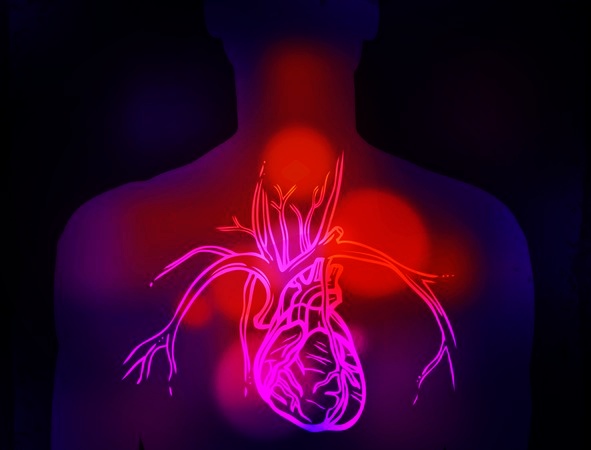
What are Heart-Saving Hormones?
Heart-saving hormones are a group of hormones that help protect the heart from various types of damage, including damage caused by ischemia, heart failure, and oxidative stress. These hormones include atrial natriuretic peptide (ANP), brain natriuretic peptide (BNP), and urodilatin. ANP and BNP are secreted by the heart, while urodilatin is secreted by the kidneys. These hormones exert their beneficial effects on the heart by regulating blood pressure, reducing inflammation, promoting vasodilation, and suppressing the renin-angiotensin-aldosterone system (RAAS).
The human heart is one of the most vital organs of the body. It pumps blood throughout the body and ensures that all organs receive an adequate supply of oxygen and nutrients. Heart disease is the leading cause of death globally. It is estimated that 17.9 million people die each year due to cardiovascular diseases. Researchers are continuously exploring ways to prevent and treat heart diseases. One such promising approach is the use of heart-saving hormones. In this article, we will discuss heart-saving hormones in detail, including their mechanism of action, therapeutic potential, and prospects.
Mechanism of Action of Heart-Saving Hormones:
ANP, BNP, and urodilatin exert their beneficial effects on the heart by binding to specific receptors, called natriuretic peptide receptors (NPRs). NPRs are present on the surface of various cells, including vascular smooth muscle cells, cardiac myocytes, and renal tubular cells. When ANP, BNP, or urodilatin bind to NPRs, they activate a signaling pathway that leads to the production of cyclic guanosine monophosphate (cGMP). cGMP is a signaling molecule that regulates various cellular processes, including vasodilation, natriuresis, and inhibition of the RAAS.
Therapeutic Potential of Heart-Saving Hormones:
Heart-saving hormones have shown promising results in various preclinical and clinical studies. These hormones have been studied in various types of heart diseases, including heart failure, ischemic heart disease, and hypertension. Here are some of the potential therapeutic applications of heart-saving hormones:
Heart Failure:
Heart failure is a condition in which the heart is unable to pump blood efficiently. This can lead to a buildup of fluid in the lungs and other parts of the body. ANP and BNP have been shown to improve symptoms and outcomes in patients with heart failure. These hormones promote vasodilation, reduce preload and afterload, and increase cardiac output. Clinical trials have shown that the administration of ANP or BNP can improve symptoms, reduce hospitalizations, and improve survival in patients with heart failure.
Ischemic Heart Disease:
Ischemic heart disease is a condition in which the blood flow to the heart is reduced, leading to damage to the heart muscle. ANP and BNP have been shown to reduce the size of the infarcted area in animal models of myocardial infarction. These hormones promote vasodilation and improve coronary blood flow, leading to improved myocardial perfusion. Clinical trials have shown that the administration of ANP or BNP can reduce the incidence of recurrent ischemic events in patients with acute coronary syndromes.
Hypertension:
Hypertension is a condition in which the blood pressure is persistently elevated. ANP and BNP have been shown to reduce blood pressure in animal models and humans. These hormones promote vasodilation and inhibit RAAS, leading to a reduction in blood pressure. Clinical trials have shown that the administration of ANP or BNP can reduce blood pressure in patients with hypertension.
Future Prospects:
Heart-saving hormones have shown promising results in preclinical and clinical studies, and their therapeutic potential in various heart diseases is being explored. However, there are still many challenges that need to be addressed before these hormones can be used in clinical practice. Here are some of the prospects of heart-saving hormones:
Development of Novel Analogues:
ANP, BNP, and urodilatin are peptides that have a short half-life in the body. This limits their therapeutic potential, as they need to be administered frequently to maintain their effects. Researchers are exploring the development of novel analogs of these hormones that have a longer half-life and improved potency. These analogs could be used as a more convenient and effective therapy for various heart diseases.
Identification of Biomarkers:
Currently, there are no reliable biomarkers for heart-saving hormones. This makes it difficult to monitor the levels of these hormones in the body and assess their therapeutic potential. Researchers are exploring the identification of biomarkers that can be used to monitor the levels of heart-saving hormones in the body. This could help in the development of personalized therapies for various heart diseases.
Combination Therapy:
Heart-saving hormones have shown promising results when used alone in various heart diseases. However, their therapeutic potential could be further enhanced by combining them with other therapies. For example, the combination of ANP or BNP with angiotensin-converting enzyme (ACE) inhibitors or angiotensin receptor blockers (ARBs) could have synergistic effects on reducing blood pressure and improving cardiac function in patients with hypertension or heart failure.
Use in Other Diseases:
Heart-saving hormones have primarily been studied in the context of heart diseases. However, recent studies have shown that they could have therapeutic potential in other diseases, including chronic kidney disease, pulmonary hypertension, and sepsis. Researchers are exploring the use of heart-saving hormones in these diseases and assessing their potential benefits.
Conclusion:
Heart-saving hormones are a promising approach for preventing and treating various heart diseases. ANP, BNP, and urodilatin exert their beneficial effects on the heart by regulating blood pressure, reducing inflammation, promoting vasodilation, and suppressing the RAAS. These hormones have shown promising results in various preclinical and clinical studies, and their therapeutic potential is being explored in heart failure, ischemic heart disease, and hypertension.
However, there are still many challenges that need to be addressed before these hormones can be used in clinical practice. Future research should focus on the development of novel analogs, identification of biomarkers, combination therapy, and use in other diseases. With further research, heart-saving hormones could become a valuable addition to the armamentarium of therapies for various heart diseases.
Benefits of Heart-Saving Hormones:

Heart-saving hormones, including ANP, BNP, and urodilatin, have a range of benefits for the heart and cardiovascular system. These hormones have been shown to:
Regulate Blood Pressure:
ANP, BNP, and urodilatin are potent vasodilators, which means they can widen blood vessels and decrease blood pressure. This can help to reduce the workload on the heart and improve cardiac function.
Reduce Inflammation:
Heart-saving hormones have anti-inflammatory effects, which can help to reduce the damage to the heart caused by inflammation. This can be particularly beneficial in conditions such as heart failure, where inflammation can contribute to disease progression.
Promote Vasodilation:
Heart-saving hormones can promote vasodilation, which can improve blood flow to the heart and reduce the risk of ischemic heart disease. This can be particularly beneficial in patients with coronary artery disease or angina.
Suppress the RAAS:
Heart-saving hormones can suppress the renin-angiotensin-aldosterone system (RAAS), which is a key regulator of blood pressure and fluid balance in the body. This can help to reduce the risk of hypertension and heart failure.
Improve Cardiac Function:
Heart-saving hormones can improve cardiac function by increasing cardiac output, reducing preload and afterload, and promoting diuresis (urine production). This can be particularly beneficial in patients with heart failure or other cardiac conditions.
Cautions and Limitations:
While heart-saving hormones have a range of potential benefits for the heart and cardiovascular system, there are also some cautions and limitations to consider. These include:
Limited Clinical Data:
While there is promising preclinical and clinical data supporting the use of heart-saving hormones in various heart diseases, more research is needed to establish their safety and efficacy. Further clinical trials are needed to confirm the long-term benefits of heart-saving hormones and identify any potential side effects.
Short Half-Life:
The short half-life of ANP, BNP, and urodilatin limits their therapeutic potential, as they need to be administered frequently to maintain their effects. Researchers are exploring the development of novel analogs that have a longer half-life and improved potency.
Limited Availability:
Currently, heart-saving hormones are not widely available for clinical use. This limits their potential as a therapy for various heart diseases.
exploring the identification of biomarkers that can be used to monitor the levels of heart-saving hormones in the body. This could help in the development of personalized therapies for various heart diseases.
Interaction with Other Medications: Heart-saving hormones may interact with other medications, particularly those that affect blood pressure or fluid balance in the body. Patients should inform their healthcare provider of all medications they are taking before starting treatment with heart-saving hormones.
Side Effects:
Heart-saving hormones can cause side effects, including headache, nausea, vomiting, and hypotension (low blood pressure). These side effects are usually mild and transient, but in rare cases, they can be severe. Patients should be monitored for side effects during treatment with heart-saving hormones.
Pregnancy and Breastfeeding: Heart-saving hormones have not been studied in pregnant or breastfeeding women, and their safety in these populations is unknown. Women who are pregnant or breastfeeding should not use heart-saving hormones unless directed to do so by their healthcare provider.
In conclusion, heart-saving hormones are a promising approach for preventing and treating various heart diseases. These hormones have a range of benefits for the heart and cardiovascular system, including regulating blood pressure, reducing inflammation, promoting vasodilation, and suppressing the RAAS. However, there are also some cautions and limitations to consider, including limited clinical data, short half-life, limited availability, cost, need for biomarkers, interaction with other medications, side effects, and unknown safety in pregnancy and breastfeeding. Patients should discuss the potential benefits and risks of heart-saving hormones with their healthcare provider before starting treatment.

















